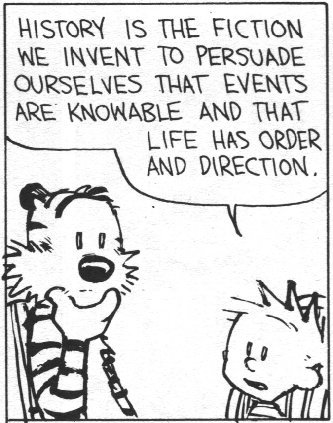History, in the end, is only another kind of story, and stories are different from the truth. The truth is messy and chaotic and all over the place. Often it just doesn’t make sense. Stories make things make sense, but the way they do that is to leave out anything that doesn’t fit. And often that is quite a lot. -- Paul Murray, Skippy DiesWhat is history? The lies the winners tell about the losers? One damn thing after another? Back when I was a temporary historian with the Historic American Engineering Record, I knew it was just one dam after another -- Newhalem, Diablo, Gorge, and Ross (chronological order of construction in what is now North Cascades National Recreational Area). I should know -- I wrote the HAER history of the Skagit Hydroelectric Project. At the time, I viewed it as an engineering triumph. I loved those dams. Would I write the same history today? No.* Would someone else write the same history I did? Again, no. I was fascinated by the controversy over the evolution of the mathematical modeling involved in designing a constant angle (aka variable radius) thin arch dam; another HAER historian might have emphasized the nitty gritty details involved in building the dams, like hauling supplies in to a difficult to reach site in a mountain canyon. Someone reading my version would be treated to a discussion of paradigm shifts and the debate in civil engineering over empirical versus theoretical knowledge. An alternative version might leave the reader with an appreciation for innovations in pouring cement. Would one version be better than another? Who knows? Who cares?
I still tend to refer to myself as a historian because that's been my official job title more than once, but I'm not sure that what I think of as history (philosophically? epistemically?) matches up with the way other people would define it. I tend to lean towards the Calvin and Hobbs definition.
Data and interpretation do not automatically add up to a universal truth. We might know that a battle happened on a certain day or that a politician got voted in or out of office, but the data alone do not tell us what anything means. We tell stories to try to make sense of events, but how well those stories match up with reality is always subject to debate. In the case of the Seattle City Light dams on the Skagit, reality was being defined one way at the time they were built and another by the time the licenses started coming up for renewal. Back in the 1920s, high dams and humongous powerhouses were viewed as progress; today they're environmental rape and an aberration. So whose story gets believed when talking about them: the engineers', the power company's, or the environmental activists'?
One definition of history is that it's the stories the winners tell about the losers. It is true that a lot of simplistic nationalistic history tends to be told that way: the winners brought civilization to the savages, liberated the oppressed peoples, fought off an evil invader, successfully rebelled against a tyrannical monarchy, or triumphed over corruption. It's also true that quite a bit of "history" is written as retroactive justification for various actions. However, the losers (or at least the ones that survive) are perfectly capable of telling their own stories, and if they tell them loud enough and long enough their narratives can drown out the winner's tale. Who decides who the winners were? It doesn't take long, and you have competing narratives, interpretations, and meanings. The more time passes, the more competing narratives you have, some based in fact and some in wishful thinking. Everyone might agree on dates and names and where things happened, but no two stories are ever going to be the same.
*For sure I wouldn't start it off with a cheesy poem about "At every waterfall two angels stay/One clothed in rainbows, the other in spray/The first the beauty of the scene reveals/The last revolves the mighty waterwheels."

Well written and why we can never stop writing or reading histories of the same event. What do you put in and what do you leave out?
ReplyDeleteI finished reading Timothy Snyder's Bloodlands: Europe between Hitler and Stalin before this whole mess exploded in February. Now I am reading Anthony Beevor's World War II. After the dozens of books I have read over the years about both wars, one would think there should be nothing new but there always is. Trying to understand the country I live in and the tides that ebb and flow in it is a never ending job. Margaret McMillan's The Uses and Abuses of History is a short book worth reading though you have summed many of her arguments in your post.
When you see the spin put on current events by various factions, how can we really know what happened in history? How the Civil War is told depends on whether you are in the North or South. Or with The Winter War, the Finns and the Russians have different stories about it. I guess a lot depends on where your sympathies lie.
ReplyDeleteThat is why you don't read "Russian" history or "Finnish" history but rather histories written by historians. Many books by many historians.
ReplyDeleteStephen Tanner's Afghanistan is an excellent military history of Afghanistan until you get to the Russian Afghan war and realize it is the official American government version. So you read that then read Steve Coll's Ghost Wars, which cover same Russian Afghan war.
history is written by the winners..so it's sort of slanted to say the least.
ReplyDelete